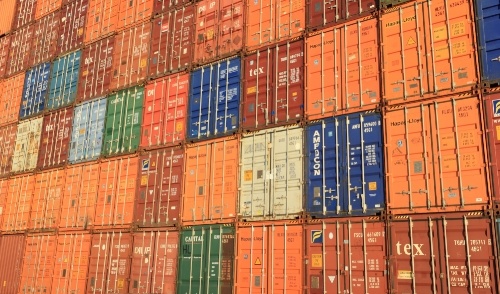 So what exactly does a freight broker do? Very simply, a freight broker is an individual or a company that brings together a shipper who has goods to transport with an authorized motor carrier that wants to provide that service.A freight broker falls into the category of transportation intermediary, which is a company that is neither a shipper nor an asset-owning carrier, but plays an integral role in the movement of cargo.
So what exactly does a freight broker do? Very simply, a freight broker is an individual or a company that brings together a shipper who has goods to transport with an authorized motor carrier that wants to provide that service.A freight broker falls into the category of transportation intermediary, which is a company that is neither a shipper nor an asset-owning carrier, but plays an integral role in the movement of cargo.
"Transportation intermediaries leverage their knowledge, investment in technology and people resources to help both the shipper and carrier succeed," - Robert A. Voltmann, President & CEO of the Transportation Intermediaries Association.
Brokers provide an important and valuable service to both motor carriers and shippers. They help carriers fill their trucks and earn a commission for their efforts. They help shippers find reliable motor carriers that they might not have otherwise known about. In fact, some companies use brokers as their traffic department, allowing the broker to coordinate all of their shipping and transportation management needs.
Brokers aren't new to the trucking industry; they've been around since the industry itself began in the early part of the 20th century. Prior to the 1970's, however, regulations governing brokers were so restrictive that few firms were willing to even try to gain entry into the industry. But with dramatic changes in federal transportation policy during the 1970's, regulatory restrictions have eased, creating new entrepreneurial opportunities in the third party logistics provider arena.
An industry so huge and diverse requires a wide range of participants to thrive. Some of these participants' titles may be a bit confusing, and some of their responsibilities may overlap. So who are the key players in brokerage and what do they specifically do?
Key Players in Brokerage:
- Freight Broker. A freight broker connects shippers with motor carriers to move their goods.
- Shipper. A shipper is an individual or business that has products or goods to transport.
- Motor Carrier. A motor carrier is a company that provides truck transportation.
- There are two types of motor carriers: "Private" (A company that provides truck transportation of its own cargo) and "For Hire" (A company that is paid to provide truck transportation of cargo belonging to others).
- Freight Forwarder. Often confused with freight brokers, freight forwarders are significantly different. Forwarders typically take possession of the goods, consolidate numerous smaller shipments into one large shipment, then arrange for transport of that larger shipment using various shipping methods, including land, air and water carriers.
- Import-Export Broker. They are facilitators for importers and exporters. Import-Export Brokers interface with U.S. Customs, other government agencies, international carriers, and other companies and organizations that are involved in international freight transportation.
- Agricultural Truck Broker. Generally small and operating in one area of the country, unregulated agricultural truck brokers arrange motor carrier service for exempt agricultural products.
- Shipper's Associations. Shipper's associations are exempt, nonprofit, cooperative organizations formed by shippers to reduce transportation costs by pooling shipments. Shipper's Associations operate in a manner very similar to that of freight forwarders, but their service is limited to their members and is not available to the general public.
In a perfect world, of course, each entity in the industry would handle its traditional role and that's all. However, the transportation industry is changing so rapidly that once-distinctive lines are always blurring. Also, it's quite common for a successful freight broker to expand his or her business by creating subsidiaries or additional companies that offer other freight services.
Some brokers also may opt to use agents to develop a wider scope of operations. In this context, agents are independent contractors who represent a freight broker in a given area. This gives the broker a local presence while giving the agent access to the broker's services for their own customers. An agent's work is very similar to what a broker does, but the agent functions under the auspices of the broker and the broker is the one responsible for such issues as paying carriers and maintaining the required surety bond.
As you can tell, there are many different types of freight brokers out there. Hopefully this clears up what their roles are and what services they provide. A good freight broker or 3PL is a crucial asset in your supply chain.

